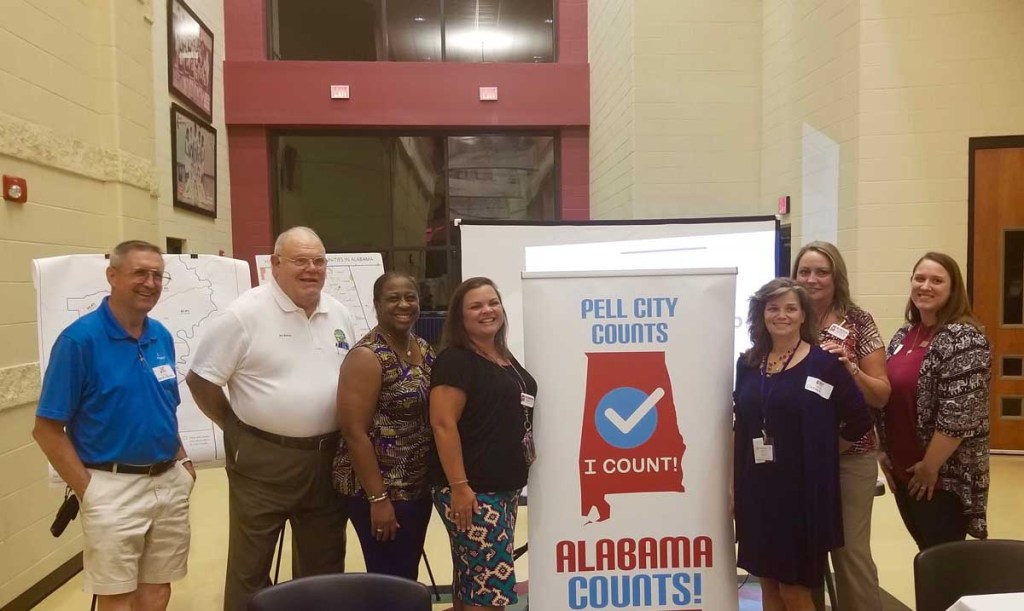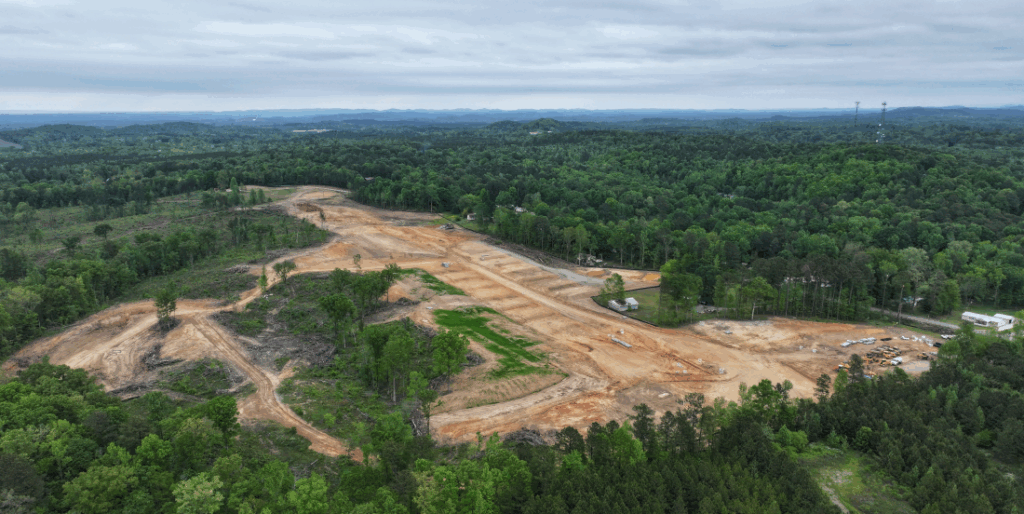Counting down to the 2020 Census
Published 1:22 pm Friday, October 11, 2019

- Local leaders attend the Alabama Counts! 2020 Census Forum. Pictured (l-r) Wynton Benefield, Councilman Jay Jenkins, Pell City School Board VP Tammie Williams, Sheree Pruitt, Deb Howard, Jeanette Jueckstock, and Ashley Lewis. Photo by Adam Fagan
On Thursday, Oct. 3, members of the U.S. Census Bureau, ADECA and VOICES along with local groups in St. Clair County held a 2020 Census Community Leaders Forum at the Center for Education and Performing Arts (CEPA) in Pell City. The meeting focused on the essential importance of an accurate census count and developing strategies in reaching populations which may be difficult to count.
Jake Jacobs, Government Affairs Director for VOICES, a child advocacy group in Alabama, opened the seminar speaking about the importance of ensuring children are included in census data. Although children are not old enough to vote, their inclusion in the population count affects important policy decisions such as representation in Congress and the allocation of state and local funds which will supply children with access to important government services such as Medicaid. Children may be left out of census counts for a variety of reasons.
Trending
The census is conducted every ten years, and inaccurate census data sticks to an area for that entire length of time. As a result of the last census, Alabama lost a seat in the House of Representatives due to a perceived shrinkage of population, however this may be due, in part, to low participation. Many populations are considered “hard-to-count” due to various factors such as low access to broadband internet, general distrust of government officials or lack of a permanent address. Almost 40 percent of rural Alabamians lack access to a broadband internet connection. As many as 10 percent of Alabamians only have internet access through mobile phone data plans.
Generally, mistrust in government can be a major factor in reaching certain population. Perry Macon, Partnership Specialist with the Census Bureau, emphasized the importance of the legal purpose and mission of the census is only to obtain statistical data for policy, and all personal information obtained for the census is protected and cannot be shared with any other government agency. It does not matter if the participant has a warrant or residing illegally in the U.S., the purpose of the census is to count the number of people living in the U.S. and nothing more.
The Census Bureau and its partnerships are currently moving through their education phase in preparation for next year’s census count. Starting in January 2020, the bureau will move into their awareness phase, which will shift their efforts into reminding everyone of the upcoming census.
Invitations will begin to arrive in mid-March, with reminder postcards arriving in the following weeks up to the second week of April. The bureau also conducts special operations in conjunction with local law enforcement to track and reach homeless populations which are also important to include in the census.
Nancy Lawrence, Geographic Information Specialist for ADECA, says “hard-to-count” populations do not just comprise physical locations on the map, but also population groups within an area. Low income families, those households who do not speak English and children are all considered hard-to-count. Members of local census groups can reach out to local school boards and community leaders. Church leaders can be important in reaching many populations.
“The stakes are high for Alabama in 2020. Every Alabamian directly benefits from the federal programs with funding allocations that are determined in part by census data,” Governor Kay Ivey stated in a release. “Completing a census form will help ensure that Alabama receives its fair share of funding. The federal government also will use 2020 Census data to allocate the nation’s congressional seats. Many projections currently have Alabama at-risk of losing one of its seven congressional seats.”
Trending
For more information, visit https://census.alabama.gov/





